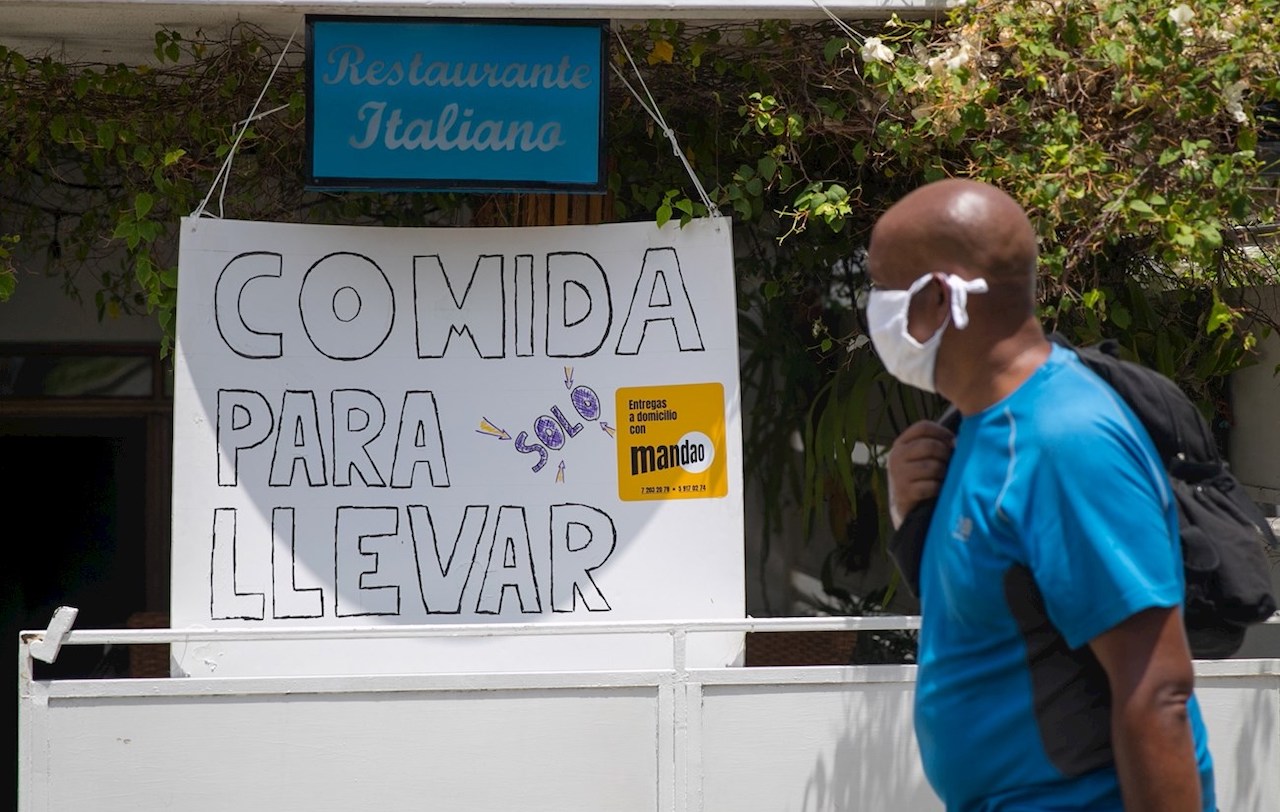This Saturday it was the turn of the Minister of Finance and Prices, Meisi Bolaños Weiss, at the Round Table, and, although she did not explain how what exactly the impending changes in taxes on the self-employed will be as if January 1, when the Tarea Ordenamiento tax reform goes into effect, she did say that "there are important changes to their tax payments."
A few weeks ago, in relation to this issue, Deputy Prime Minister and head of the Economy Ministry Alejandro Gil suggested that it would be government policy to offset the increased costs of self-employed workers by "intelligently" handling taxes. In other words, in real terms the private sector would pay less in taxes than it does today.
In any case, for self-employed people some running costs common to almost every business activity are as unavoidable as taxes: water, telecommunications, electricity and gas. These expenses are combined in different ways depending on the type of business, but in one way or another they affect everyone.
The perverse thing about these expenses is that they are not elastic. Consumers, mainly self-employed workers who do not want to lower the quality of their services, will not be able to reduce their consumption as the costs increase. Rather, they will have to bear the brunt of it in their ledgers.
Those who are big consumers of water - swimming pool services, car washes, restaurants, cafeterias, bars and fish sellers - must be very worried, as the costs will go from the current flat price of seven pesos/month/cubic meter exceeding 3.75 cubic meters/inhabitant in a domicile, to a progressive scale ranging up 21 pesos/cubic meter/month.
As most businesses of the self-employed are domiciled in private residences, the calculation will be done based on the home’s inhabitants, regardless of the type of enterprise.
For those who sell food - candy stores, cafeterias, bars, restaurants, bakeries, sausage makers - and some other businesses that need heat, such as plastic processors, the price of gas is a vital factor.
Those who use bottled gas can consider themselves lucky: they will "only" see a doubling of the price. Those who supply themselves with manufactured gas pipes, known in Cuba as "de la calle", must be in shock, as the value of this fuel will be multiplied by 22. And no one can choose between the two, as it depends on which one you get.
With reference to cellular telecommunications and the Internet, a major expense for the self-employed, prices remain unchanged. Of course, ETECSA's prices are not only exorbitant in relation to the quality of the service offered, but even in comparison to similar services, but of much higher quality, in Europe or America.
It remains to be seen how it will affect the telecommunications infrastructure if Cubans in general decide to spend more of their new pesos on telephony and the Internet, increasing demand. It is not unreasonable to suppose that this service, which is already very deficient, especially when it comes to the Internet on cell phones, will get notably worse, which would be equivalent to an increase in price due to the decrease in the quality received.
The cost of electricity is probably the biggest threat. The rate increases practically five times, a cruel blow for those who must use refrigeration equipment, air conditioning, or industrial machines such as lathes or presses (which are almost always obsolete and, hence, energy hogs). Businesses will be affected in general, as nearly all require significant amounts of this energy.
A restaurant or room rental that consumes an average of about 1,500 Kw/h (remember that many businesses are in private households) that used to pay some 3,000 pesos, as of January will be paying 15,000.
Finally, we should not lose sight of the fact that the self-employed are facing this new scenario after suffering months of mandatory closure due to the quarantines imposed by the government in the face of the Covid-19 pandemic. Many were decapitalized during this period because their equipment and buildings needed repair, and, although they did not have to pay taxes if they temporarily gave up their licenses, they did not receive any of the subsidies that the government gave state workers... although the 400 or 500 pesos would not have made much of a difference.
Regardless of what the government announces in terms of taxation, reviving self-employment in Cuba will be a very tough row to hoe. Some, the best positioned or with family abroad, will open up and adjust to the new circumstances, but a great many will have to close down forever, shattering their dreams of being able to live off their own efforts.
